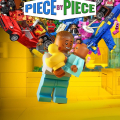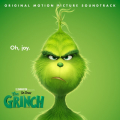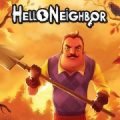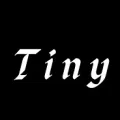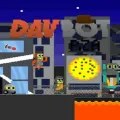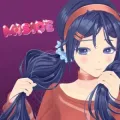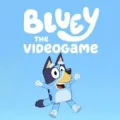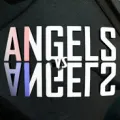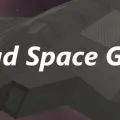Exploding Kittens
Review
The first time I saw the "Exploding Kittens" card game, I was instantly drawn to its absurdity. A game with a mix of whimsical humor and strategic tension, it promises joy and camaraderie. So when I heard "Exploding Kittens" had been adapted into an animated series, my curiosity was piqued.
Exploding Kittens review
The first time I saw the "Exploding Kittens" card game, I was instantly drawn to its absurdity. A game with a mix of whimsical humor and strategic tension, it promises joy and camaraderie. So when I heard "Exploding Kittens" had been adapted into an animated series, my curiosity was piqued. Could this be a successful transition from tactile excitement to visual storytelling? Unfortunately, my optimism was short-lived.
The Enigmatic Origins
Let's start with a bit of history. "Exploding Kittens" debuted as a card game through a wildly successful Kickstarter campaign in 2015, securing over $8 million from more than 200,000 backers. The game's creators, Elan Lee, Matthew Inman, and Shane Small, tapped into a unique formula: quirky humor, simple rules, and a dash of strategy. The game became a household name, fostering laughter and, occasionally, frustration for players of all ages.
From Tabletop to Tabletops
The leap from card game to animated series should have been a golden transformation. Instead, it seems to stumble at every hurdle. The quirky illustrations by Matthew Inman that made the card game visually engaging fell flat when translated into the animated format, losing their charm and becoming visually chaotic and uninspired.
The Missing Connection
One would expect a storyline close to the essence of the original game, but the animated series concocts a plot that’s completely disconnected from the game. God decides he needs a break from his celestial duties and descends to Earth as a cat to observe humanity firsthand. The setup is whimsical, no doubt, but it comes off as an unrelated and forced plot device rather than a natural progression from the game’s premise.
The Cast of Characters
The family God-cat lodges with—the Higginses—is a mismatched ensemble. Abbie, a former Navy SEAL, fails to find fulfillment in her suburban life. Abbie's bumbling husband Marv is a bulk-buy store manager with an inexplicable passion for inventing games for their game night. Their children include internet fame-seeking Travis, dull-witted Aiden, and competent Greta. The characters feel like clichés pulled from a grab-bag rather than people worth investing in emotionally.
A Deity in Distress
God as a cat struggling to adapt to Earthly life is an amusing concept in theory. His fascination with mundane things like laser pointers and pigeons offers a momentary chuckle. However, the novelty of a divine being grappling with earthly pleasures and frustrations quickly wears thin due to repetitive and uninspired scripting.
The Villain's Entrance
Enter Beelzebub, also in cat form, cast out of hell for incompetence. Her ineptitude manifests in minor annoyances like slow internet and earworm songs rather than epic acts of malevolence. This underwhelming portrayal strips the story of any meaningful tension or stakes, reducing her to a caricature rather than a formidable adversary.
Script and Substance
The dialogue is where the series arguably fails the most. Jokes fall flat, and each punchline is more forced than the last. For example, a line about how pigeons are "disgusting yet delicious, like a Las Vegas buffet or Timothée Chalamet" doesn't stick—the Las Vegas buffet works, but Chalamet merely feels out of place.
The Unfortunate Humor
The humor often misses its mark by a wide margin. Comedy demands timing and relevance, but the series swerves into realms of awkwardness and irrelevance. A reference to omnipotence/impotence mixed with infertility typifies the level of misunderstanding in play. Such moments betray a lack of finesse in comedy writing that viewers should expect from any animated series attempting humor.
Visual Aesthetics
One of the game’s captivating elements was its artwork. In the animated series, the art that once delivered charm and whimsy now seems cluttered and difficult to digest. The colors clash, and the character design feels sloppy, detracting rather than adding to the viewing experience. One might have expected more fluid and polished animation; alas, it was not to be.
Pacing Problems
The narrative pacing is another glaring issue. Scenes drag on without substance, and storylines meander without finding a strong path forward. The excitement that a quick card turn can afford in the game never translates into the show, leading to episodes that feel interminable.
Relatable Roots?
Success in animation often lies in creating characters and situations that resonate on some level with the audience. Here, the premises are so far removed from any semblance of reality or heartfelt emotion that it’s difficult to find a hook. The family dynamic lacks authenticity, feeling forced and artificial throughout.
Music and Sound
The score and sound effects are perhaps one of the more salvageable elements of the show. However, even they cannot rise above mediocrity. It feels as though the sound design is working overtime to elicit emotions that simply cannot be evoked due to the uninspiring narrative and visuals.
Viewer Engagement
One might presume that the show would engage gamers who love the original card game, but it’s quite likely to make them question their affection for the brand. The disconnect between the game and the show is too pronounced to hold their interest, and newcomers have little reason to stay invested.
Unfulfilled Potential
The show had potential; that much is clear. However, that potential remains untapped. The source material offers a treasure trove of creative possibilities, but the series chooses to abandon the quirks and charm entirely. The result is a hollow shell of what could have been an engaging and innovative adaptation.
Comparing the Mediums
Comparing the card game to the animated series feels almost unfair. The tactile suspense, strategic decisions, and bursts of laughter from a well-timed "Exploding Kitten" card cannot be replicated on screen. The series chases after humor but fails to encapsulate the essence of what made the card game so beloved.
Audience Expectations
Given the massive success of the card game, expectations for the series were naturally high. Fans of the game hoped for a faithful adaptation that expanded upon its quirky, light-hearted nature. This, however, veered into an odd, mismatched narrative that felt like pandering rather than a tribute.
Final Thoughts
In conclusion, "Exploding Kittens" as an animated series is a misfire on multiple fronts. Its attempt to capture the essence of the card game flounders, resulting in a show that lacks the humor, wit, and engaging qualities of its predecessor. For those seeking the charm of the original game, the series may only serve as a disappointing shadow.
A Message for Potential Viewers
If you are considering diving into the "Exploding Kittens" cartoon, lower your expectations significantly. Enjoy the card game for its unique blend of humor and strategy, and perhaps allow the animated series to rest as an unfortunate experiment that didn’t quite pan out.





